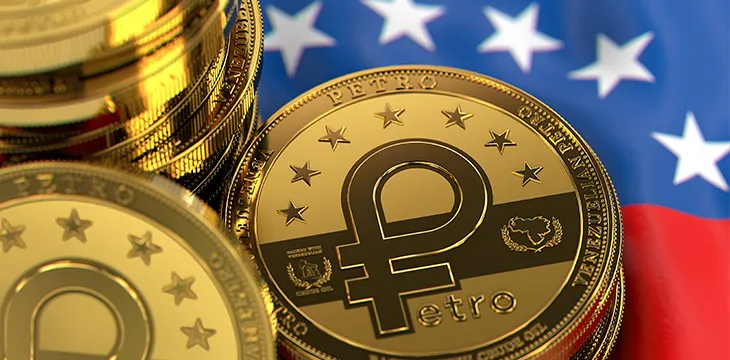|
Getting your Trinity Audio player ready...
|
This feels very much like a Ponzi run, except…double that run. And maybe triple it if it still doesn’t work.
Last month, Venezuelan president Nicolás Maduro was sworn in after being re-elected, with the election results being rejected by other jurisdictions, and with only a 46% voter turnout. Despite having the world’s largest oil reserves, the country has continued to spiral down in poverty. This, despite the president’s recent ride with the hype of cryptocurrencies.
It has been over four months since the wildly hyped (and ridiculed) Petro ICO. And the token has been suffering one rejection after another.
India has rejected it. The US has banned it. Heck, even Venezuelan politicians say it’s unconstitutional, describing it as nothing but “oil-backed debt.”
And while the Venezuelan government has nothing to show for it other than a poorly written white paper, the president was quick to jump onto a new one. The new “cryptocurrency,” the Petro oro (gold) would (allegedly) be backed by precious gems, gold being a primary backing.
“Next week I’m going to launch the Petro Gold, backed by gold, which is even more powerful, that will strengthen the Petro,” Maduro said in February, just a day after the Petro’s ICO, from which he claims they made $735 million.
To date, we haven’t heard of the Petro Gold again. In fact, we haven’t heard much of the Petro either, apart from being banned and rejected here and there. Nobody even knows who’s working on the Petro. They do realize someone needs to work on it, no?
Unless you don’t really have the inventory, nor the technological capability to even build what you promised—or any plans whatsoever to deliver anything past the marketing stunt, starring the President himself as the poster boy, nonetheless.
What do you call that, then?
Vaporware. Also, state-sponsored Ponzi.
Now they will have not just one, but two national cryptocurrencies, if Maduro pushes through with the second leg of the get-rich quick stunt. If exchanges and other countries continue rejecting both, let’s throw a third one in there, shall we?
The Petro, the Petro Gold, and whatever other “cryptocurrency” they may spawn later on will not save Venezuela—precisely because they don’t want to save Venezuela. But they do like money. And it seems the Venezuelan government has had enough looting its own country. Now they want to loot the rest of the world—if it would let them.
In fact Venezuela’s cryptocurrencies are not even cryptocurrencies, but securities backed by oil reserves. But not one any person in the right mind would trust.
“It is therefore simply a digital form of debt from a country with no financial credibility and that is badly mismanaging its economy,” Daniele Bianchi, Assistant Professor of Finance, at the University of Warwick business school wrote for The Conversation.

 07-12-2025
07-12-2025 





